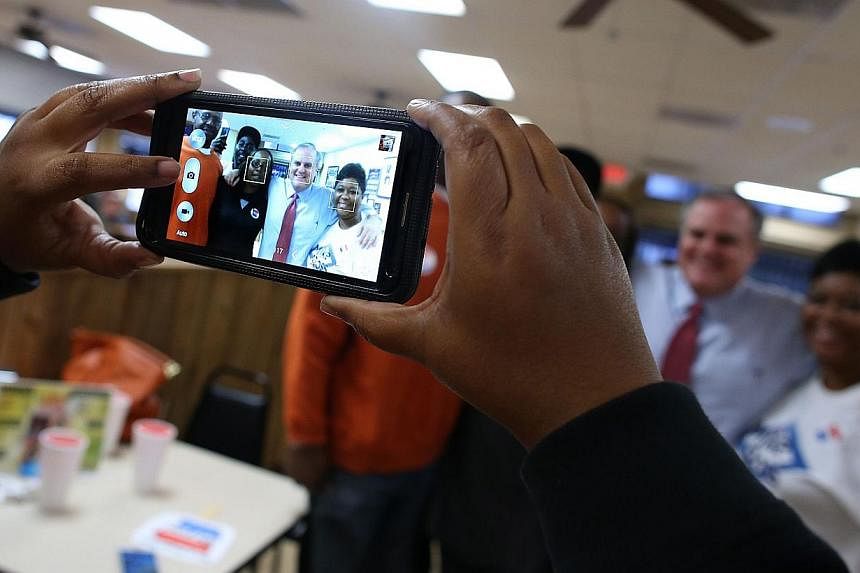"Life is an ecstasy," Ralph Waldo Emerson wrote in an essay called The Method of Nature, a founding document of American transcendentalism. Life is also electricity, as our minds' synapses and heart muscles would testify if they could.
Living molecules bear a charge and thus can intersect with others of their kind, as molecules of rock do not. We marvelled at electrical displays plunging from watery clouds in the sky as perhaps divine until we finally learned to manufacture and wire electricity ourselves, lighting the dark, then muzzling it for mundane use, to the point of blotting out the sky.
To forgo seeing the firmament, as many of us do, for Netflix and the blogosphere, is momentous - nature "unfriended", enjoyment less impromptu than scripted.
Does life become secondhand when filtered through a tailored screen? Text unenriched by body language or voice box timbre, film omnivorously edited. Is our bent straightened or warped more deeply? That's our choice in what we Google, but in the meantime, will we notice the birdsong diminishing?
I like Gene Kelly dancing in the rain as much as anybody, and geniuses from Mozart to Fellini on call 24/7, but has electricity become part-Frankensteinian, a force for segmented myopia? Not a fist, it's an explosion, hurling society toward Brownian motion, and coalescing Roman Catholicism with yoga. Fusion yet fission: E-mail is a fine way to query experts in your field en masse but, for somebody feeling suicidal, it's no substitute for a hand on the shoulder and the voice of a friend.
And that friend who might hurry over to comfort you may have difficulty in distinguishing the tenor of your texting from the spaghetti of other people's commentary.
Blather is precious in natural amounts: Like lubrication, it greases the gears, yet in excess can gum up the works.
I live on a mountain without utilities for a third of every year, so for nearly half a century I've swung back and forth to and from electrification. In the summer, living by the sun couldn't be simpler. There's more daylight than I can use, and I revel in the phases of the moon, the conversation of ravens, owls, yellowthroats and loons.
The TV and phone calls resume before winter, though life itself does not seem richer than when I listened to the toads' spring song or watched a great blue heron fish, amid the leaves' ten-thousand-fold vibrancy.
The difference of course is that leaves, loon and toad would not remain as glories when I returned to electricity. They are "electrifying" only when Vermont is temperate. I appreciate the utility of power in the winter, but many people seldom see a sunrise or sunset nowadays; they're looking at a screen.
What will this do? The Northern Lights, the Big Dipper - are they eclipsed like the multiplication tables?
There was a magnetism to aurora borealis or a cradle moon, to spring peepers' sleigh-bell sound or spindrift surfing toward shore under cumulus clouds, that galvanised delights in us almost Paleolithic.
Are we stunted if we lose it, a deflation associated with migrating indoors to cyberspace, Facebook instead of faces? It's lots of fun, but will ecstasy remain in play in front of a computer screen? With microscopes and telescopes we are able to observe unscripted reality, or (if you prefer) Creation.
"The cloud" is not a cloud, however. Wild animals are filmed in Africa but edited in New York for nature programmes, although the glistening tree trunks - raindrops trickled down the collar of the cameraman - become invisible.
Online, does one even have a neck? Electricity brings us the joy of music performed elsewhere, and sports heroics, but the happiness of lying on one's back in a summer meadow flowers in us like photosynthesis, perhaps, and as innately as hugging a child. Will cyberspace sidetrack us from not only outdoor but direct experience?
NEW YORK TIMES

